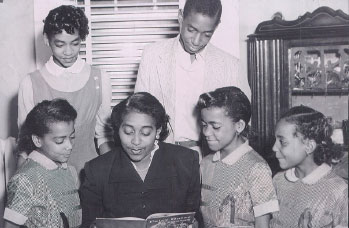Learning how to be financially secure is one of the enduring gifts that Florence Dungee Waller and Richard Waller bestowed upon their six children growing up in the 1940s and 1950s. That gift has enabled the Waller-Dungee offspring to lead lives of professional accomplishment and personal reward, and to instill those traits into their children and grandchildren.
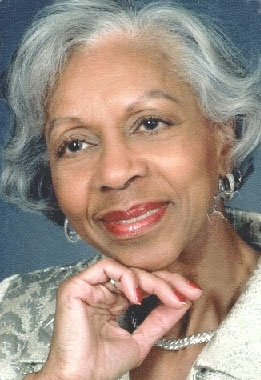
Uniting the generations is Waller & Company Jewelers, a retail jewelry store on Broad Street in Richmond, Va. Now in its 123rd year and still owned by the family, it was the first African American-owned store of its kind in the region. Waller & Co. has survived two world wars, the Great Depression, the Covid-19 pandemic, and a rampage by looters who smashed its front windows and showcases and stole merchandise during riots protesting the 2020 murder of George Floyd in Minneapolis.
During a recent phone conversation with Rethinking65, three of the Waller children — Jewel Davis, 84; Joyce Baden, 80; and Betty Gray, 77 — reflected on the lessons learned from their parents and discussed their award-wining book, “Our Shining Legacy: The Waller-Dungee Family Story, 1900-2020.’’ The book, co-authored by Davis and Baden, is a history of an exceptional family that combined skill, hard work and a commitment to community to succeed in post-Civil War America.
Davis has been married for 58 years to LeCount Davis Sr., the first African American to receive the CFP designation, in 1978, and the founder of the Association of African-American Advisors (Quad A). She began her career in the federal government in 1962, working for such agencies as the Federal Housing Administration, the Internal Revenue Service and the Department of Health and Human Services. The couple lives in Potomac, Md., and raised four children.
Two days before this interview, Davis’s husband had been recognized at a gala black-tie dinner in Washington for having been the first African American to receive a CFP designation. An endowed scholarship in his name that was set up by the CFP Board of Standards has already raised $400,000.
Davis, who often travels to events with her husband, is well-known among many advisors. But the trailblazing lives of her own family are less well known to them.
Training Ground
In 1900, Marcellus C. Waller Sr., the Waller-Dungee siblings’ paternal grandfather, started Waller & Company Jewelers in Richmond’s Sheep Hill district. At one time or another, all the siblings wound up working at the jewelry store.
He had to overcome hardships and obstacles to achieve success in segregated Richmond in the early part of the 20th century. “Grandpa Waller had no formal training in clock and watch repairing. He was self-taught, and at age 8, fixed an old mantel clock belonging to his grandmother. From that time on, he never stopped working on clocks, watches and jewelry, as well as doing mechanical work,’’ Davis and Baden remembered.
Waller used skills learned from family and his own ingenuity to succeed. Working as a delivery boy and porter at a Richmond grocery store, he learned to read and write. At 20, he bought a grocery store in the city, repaired jewelry and watches and sold insurance for a Black-owned firm. He saved enough money to buy a small building, operate a store and marry and raise a family of nine children.
In need of a line of credit, Waller overcame another racial barrier to small Black-owned businesses by borrowing money from the first bank chartered by African Americans in the United States, the True Reformers Bank of Richmond. He used the money to buy parts for repairs and a more varied product inventory.
In the face of a racist society, Waller was resourceful. White business owners would not sell him tools or parts to repair clocks and watches, so he bought discarded items, cannibalized them for parts and made his own tools, using skills he learned from his grandfather and uncle, who were blacksmiths, his granddaughters said.
“Eventually, he obtained necessary parts from companies in New York,’’ his granddaughters said. “When Richmond firms learned that Grandpa could get these needed items, the local firms then sold him the products he needed.’’
Because Black businesses were not welcome in the commercial sections of Richmond, Waller & Co. jewelers was forced to operate in a residential section of the city. But good word of mouth drew customers and helped the business succeed in its unconventional location. Waller even eventually overcame being excluded from the White-dominated network of jewelry store owners, suppliers and retail organizations, his granddaughters said.
They added that Waller taught his six sons how to repair jewelry, and three of them followed him into the jewelry business. Widowed in 1917, he remarried, bought another property and remodeled it to make a small retail and service establishment; here he began operating the jewelry store exclusively.
A Strong Role Model
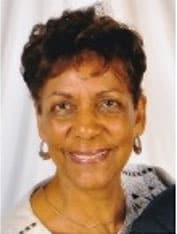
The family has also gone through hard times. When the Waller children’s father died in 1955, at 47, their mother, Florence, then 43, had to scramble to support the children. She became self-sufficient, operating kindergarten and day care centers, and later, being a dormitory director at Virginia Union College in Richmond. Florence was the daughter of Fannie and Jesse Dungee, both born in 1878.
In “Our Shining Legacy,’’ authors-sisters Davis and Baden describe their widowed mother as, “a phenomenal woman — parent, teacher, civic activist and more.’’
“As a child, I knew I would be a career woman,” says Davis. “I used to see many women heading to work to do housework for other people and I said to myself, ‘I wouldn’t want to do that work.’”
“I enjoyed being independent because it gave you confidence and you learned skills you could use in the outside world,” she said.
Technical Success
Co-author Baden, three years younger than Davis, received a bachelor’s degree in physics from Norfolk State College, and had a successful career working in science and engineering for a technology research institute, as well as for the state of Maryland in information systems management. She met her husband, Aubrey Baden Jr., also a physics major, at college; they’ve been married 58 years, and have a son, Aubrey Baden III.
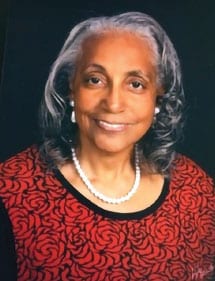
Gray, a retired mathematics and computer software expert who continues to work at the jewelry store part time, also pursued a technical career. Thirteen days after graduation from Norfolk State College, she began her first job, working at chemical giant DuPont’s Richmond plant. She later worked for Philip Morris International. After retiring, she operated a personalized computer service.
Like her mother, Gray has been an activist, working for women’s rights and in the Civil Rights movement. She attended the first March on Washington in 1963, and returned for the 30th and 50th anniversaries of the march with her daughter, Leonetty.
Gray is the older twin to Barbara Nealy, who died in 2020. Nealy was an honors graduate from Norfolk State College and received a master’s degree in education. She taught for many years and also was a planning analyst for Baltimore County. Lillian Moore, the third daughter of Florence and Richard Waller, died in 2018. A registered nurse, the mother of two sons and wife of Haywood Moore, she was born in 1944.
Brother Richard Waller Jr., 85, is the oldest of the siblings. As the current owner of Waller & Co., he keeps a beat on the family business, which is now run by his sons, Richard III and David.
Book Notes
“Our Shining Legacy,’’ published during the 2020 COVID-19 epidemic, received the 2021 award in the non-fiction, historical category, from the Afro-American Historical and Genealogical Society.
The book is divided into seven parts, telling the stories of the siblings’ maternal and paternal families. It traces the journey of these resourceful and skilled Black Americans in Richmond, the old capital of the Confederacy, from the end of enslavement, through Reconstruction, segregation and the Civil Rights movement, up to the pandemic, which failed to close the family store.
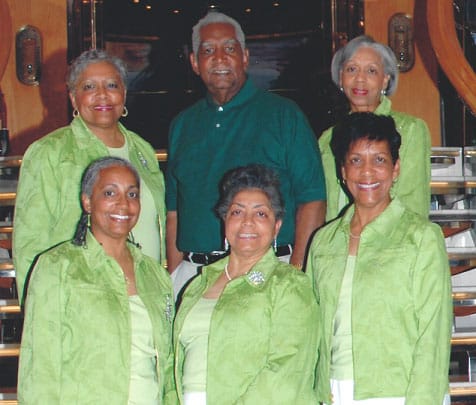
The book has dozens of family photographs, including pictures of an M.C. Waller & Son business card from the 1920s; the Moore Street Baptist Church in Richmond, a source of friendship and spiritual support for the families; Gray’s mementoes from marching in the historic 1963 March on Washington, and its anniversary gatherings in 1993 and 2013; letters and thank you notes from Dr. Martin Luther King Jr., President John F. Kennedy and Mamie Eisenhower; Gray’s 1967 job offer, at $650 per month, from DuPont; and a proclamation on the 100th year of the jewelry store from the City of Richmond.
The book also includes a photo of Grandmother Fannie Dungee’s 1900 diploma from Richmond Public Schools. Grandmother Fannie, who became a schoolteacher, was born in 1878. Her mother, Mary was born into slavery, in Virginia, in 1852.
A willingness to sacrifice for goals has been passed from one generation to the next, the sisters said.
“We were able to observe previous generations and the principles that they followed: Saving and not spending all that you’re making was important,” Davis said. “The work ethic was even more important. So, everybody worked hard: our granddads on Dad and Mother’s side, both of their families were able to buy houses early in the century. Those ideas transferred down to us. They worked hard and we saw their example,’’ Davis says.
Baden noted that work ethic has transferred to the next generation. “We are fortunate in that each of our children is a homeowner or in a position to be a homeowner,” she said.
A Eureka Moment
At what they called a retreat, the sisters gathered one weekend to share hundreds of family photos they’d each collected. They had the photos scanned and each got a set of thumbnails, but the collection sat on shelves for four years.
“One day, we said we should write about our lives, not just have a picture history, so that the next generations would know what earlier generations were like,’’ Davis says. Then, working with the photos, plus writings from their parents and grandparents, the sisters had an eureka moment: “We have a book here!’’ she says.



